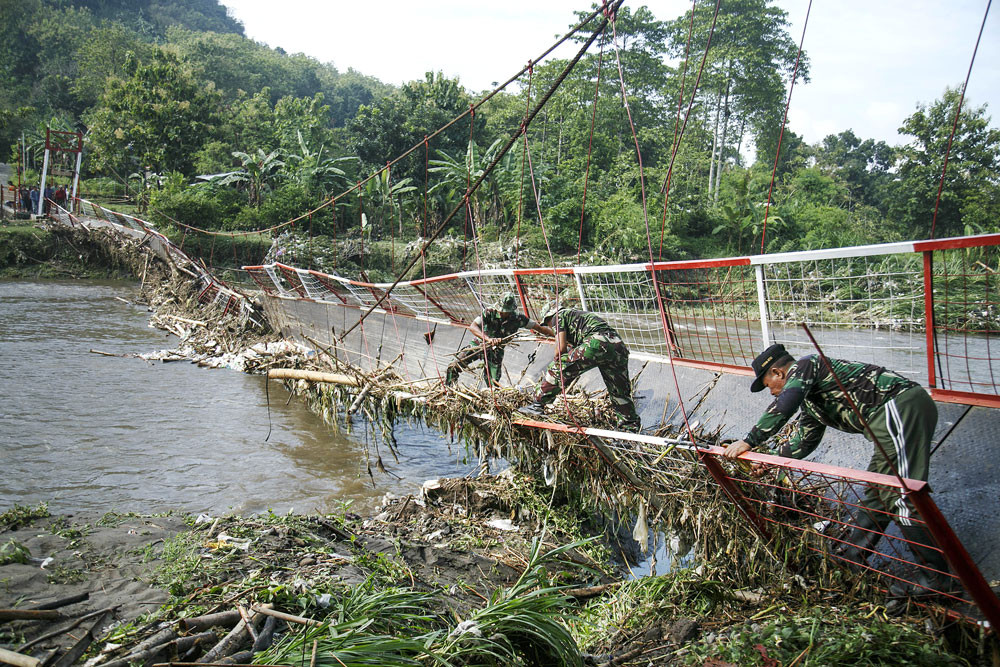Popular Reads
Top Results
Can't find what you're looking for?
View all search resultsPopular Reads
Top Results
Can't find what you're looking for?
View all search resultsYogyakarta's Piyungan river contaminated with chromium: Study
Djoko said the waste had also polluted peoples' wells and was absorbed by food crops, including rice, chili and cassava.
Change text size
Gift Premium Articles
to Anyone
T
he Piyungan River in Bantul regency, Yogyakarta, has been polluted with chromium from waste disposed by four nearby leather tanning factories, a study has revealed.
"The amount of [chromium] that can be tolerated by humans is 0.01 parts per million [ppm], but [my study] revealed that the amount reaches from tens to hundreds ppm," said Djoko Rahadjo, a researcher at the Duta Wacana Christian University, who has been studying the river for four years, on Wednesday.
The Piyungan River flows southward from its source on the slopes of Mount Merapi to the Opak River before reaching the southern coast. The four companies are located 25 kilometers from the sea.
Djoko said chromium was a substance used to remove fur from animal hides.
"[Chromium] is fluid waste that is harmful to humans, it can even lead to death," he said.
For his research, Djoko said he had taken blood, nail and hair samples from around 30 people living alongside the river. The results showed that 75 percent of the samples contained chromium.
"The bad effects of chromium to human health will only be felt in five to 10 years, starting with kidney and liver failure and eventually leading to death," he said.
The substance is also consumed by fish and mollusks, which are then consumed by humans. Djoko said the waste had also polluted peoples' wells and was absorbed by food crops, including rice, chili and cassava.
"The regulations have to be clear and enforced. If peoples’ health is being affected negatively, then we can't only think of short-term economic impacts," Djoko said.










